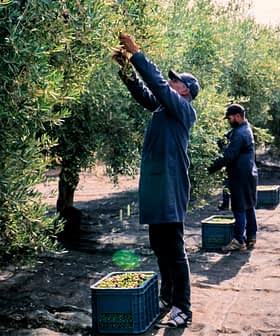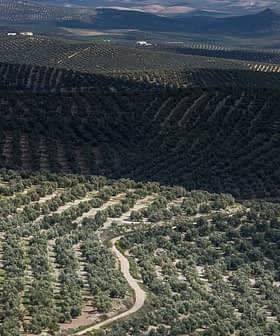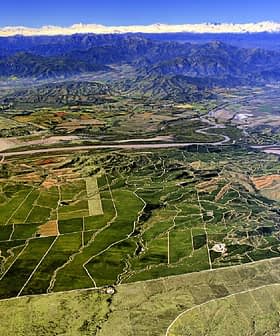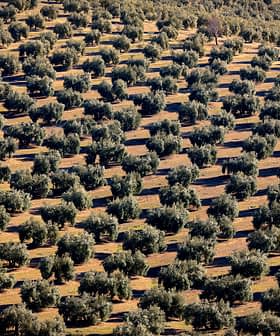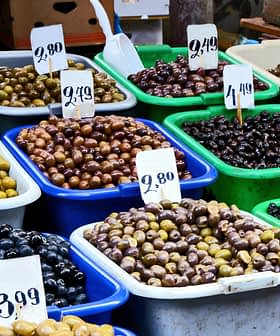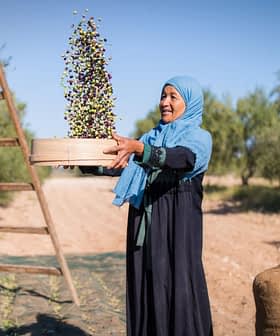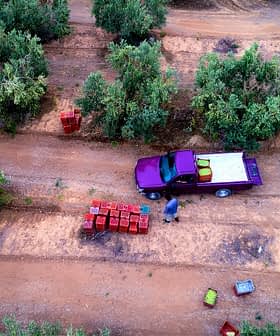N. African Producers Move from Bulk to Branded
Tunisia and Morocco, two North African countries, are experiencing a boom in olive oil production and exports, with Tunisia expecting a record harvest of 220,000 tons this year. Both countries are moving towards branded products to compete in the international olive oil market as consumers show increased interest in quality and origin designations.
Despite a long history and rich traditions, olive oil from the former French Protectorates Tunisia and Morocco still have not gained international attention.
While the world’s largest producers and exporters, Italy and Spain, have had a painful year struggling to supply their expected quota of extra virgin olive oil, it’s a different story in two North African countries where the olive season has been excellent.
In Tunisia on the northern coast of Africa, olive growers are rejoicing: they’ve had an exceptional year and have started to take advantage of increasing worldwide demand for extra virgin olive oil.
According to the International Olive Council (IOC), Tunisian olive oil production is expected to reach 220,000 tons this year, an increase of 160 percent. The record harvest is good news for a country with an otherwise declining economy.
A statement released from Tunisia’s Ministry of Industry, Energy and Mining said that the Tunisian Council of Olive Oil expects olive oil export revenues to reach more than 1,800 million Tunisian dinars ($935 million) for the 2014 – 2015 season.
Although olive oil is Tunisia’s principal export commodity, the country has always been in the background on the olive oil production world stage and has never been given the recognition it deserves. Tunisia exports around 75 percent of its olive oil in bulk to Italy and Spain where it is mixed with other oils, bottled and marketed.
Now, Tunisia wants to be more competitive with its own branded products. In April this year the country hosted the third national competition for the “best packaged olive oil.” Based on two criteria — the quality of olive oil and packaging design — the competition organized by the Ministry Industry, Energy and Mining attracted twenty-two producers and three were recognized with awards. Despite its move toward higher quality production, Tunisia was winless in this year’s New York International Olive Oil Competition.
Neighboring Morocco, already the second-largest global exporter of table olives, is reaping the rewards of the government’s Green Morocco plan for olive farming. In 2008, The Moroccan Government introduced the program to encourage farmers in rural areas to switch to growing olive trees instead of wheat or other crops, creating more jobs and a boost to olive oil production. Thanks to the initiative, Morocco now has one million hectares dedicated to olive groves.
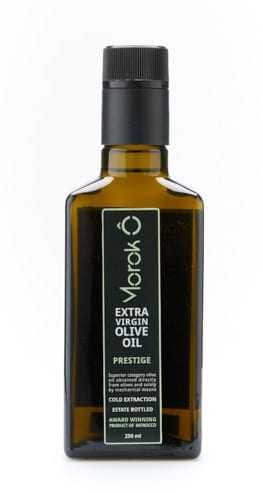
According to the Moroccan center for Export Promotion, Morocco has almost doubled its production in six years to 1.5 million tons. The olive oil sector has greatly reduced unemployment for women in particular, creating over 300,000 permanent jobs
Up until now, the quality of Moroccan olive oil was relatively unknown but researchers, using industry standards recently analyzed and published their report on the quality and purity of Moroccan olive oil in the journal Food Chemistry. Researchers classified 94 percent as extra virgin and only 6 percent as virgin oil. One Moroccan olive oil brand, Morok O, won a Gold Award at the NYIOOC.
According to Morocco’s Directorate of Studies and Financial Forecasts (DEPF) Morocco’s main export clients are the European Union with shares of 50 percent and the US with 37 percent.
As consumers abroad are showing greater interest in quality olive oil and origin designations, the next step for both countries, industry stakeholders say, is to move from bulk exporting to branded products for added value.


